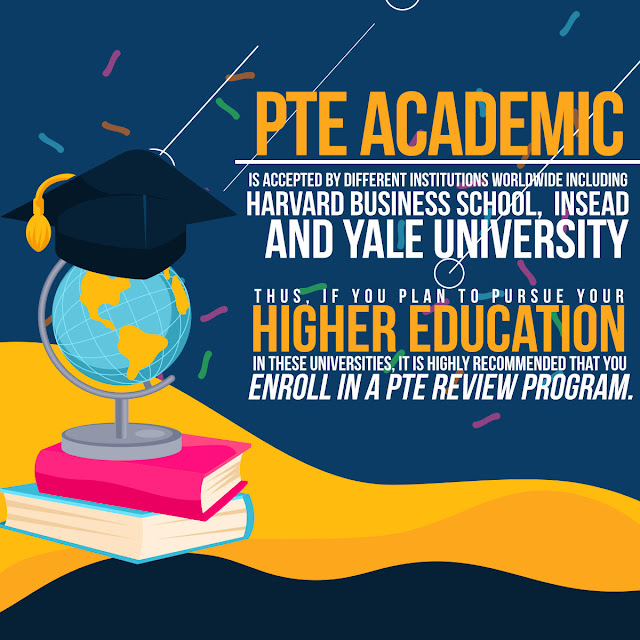PTE review course were designed to help students on their journey toward their dream career in an English-speaking community. PTE Academic is a computer-based English exam for individuals who want to continue their education or migrate abroad.
PTE Academic is accepted by different institutions worldwide including Harvard Business School, INSEAD, and Yale University. Thus, if you plan to pursue your higher education in these universities, it is highly recommended that you enroll in a PTE review program.
The first set of discussions in PTE review focuses on revisiting the fundamental topics in the English language. One of the lessons you will encounter is about gerunds and infinitives.
Gerunds vs. Infinitives
The first set of discussions in PTE review focuses on revisiting the fundamental topics in the English language. One of the lessons you will encounter is about gerunds and infinitives.
Gerunds
A gerund is a verb that functions as a noun. It is most commonly referred to as the -ing form. A gerund phrase, on the other hand, is a gerund accompanied by its objects, complements, and modifiers. Below are some useful guidelines when using gerunds.
• To form a gerund, add -ing to the verb.
Example:
play = playing throw = throwing kick = kicking
start= starting walk = walking sing = singing
• If the verb ends in e, replace e with -ing.
Example:
slide = sliding wipe = wiping cite = citing
hide = hiding bake = baking smile = smiling
• If the verb ends in ie, replace ie with y and add -ing.
Example:
die = dying lie = lying vie = vying
tie = tying
• If the verb ends in y, add -ing.
Example:
pry = prying cry = crying try = trying
spy = spying pray = praying apply = applying
• If the verb ends in a vowel followed by a consonant, double the consonant and add -ing.
Example:
begin = beginning pin = pinning chat = chatting
grip = gripping quit = quitting win = winning
Infinitives
An infinitive is the to + the base form the verb. It can function as another part of speech and can serve as either the subject or the object of the verb when used in a sentence. Below are some useful guidelines when using infinitives.
• Use the infinitive form to express a purpose; answer the question why.
Example:
The students went early to study together.
He stepped out to enjoy the rain.
• You can use the infinitive form as a subject of a sentence.
Example.
To see the sun rise is the highlight of my morning.
To forget the pain is harder than it seems.
• Sometimes, you use in order to and in order not to.
Example:
We study every day in order to pass the exam.
They entered the gate quietly in order not to wake the guard.
• You can also use so as to or so as not to.
Example:
They went to class earlier so as to avoid the traffic.
He studied hard so as not to fail the exam.
Learning about the fundamentals of the English language can help you deal with the more complex topics. Maximize your preparation period by engaging in group study sessions and enrolling in a PTE Academic review center.
REFERENCES:
- "Gerunds & Infinitives—Meaning, Examples & Exercises." Ginger Pages. Accessed June 01, 2017. http://www.gingersoftware.com/content/grammar-rules/verbs/gerunds-and-infinitives/.
- "Know the Difference: Gerunds vs. Infinitives." Ginger Pages. Accessed June 01, 2017. http://www.gingersoftware.com/content/grammar-rules/nouns/gerunds-infinitives/.
- Ward, Angela. "Gerunds and Infinitives." Pinterest. March 12, 2017. Accessed June 01, 2017. https://www.pinterest.com/pin/273593746093545560/.
- "Writing Advice Home." Writing Advice. Accessed June 01, 2017. http://advice.writing.utoronto.ca/english-language/gerunds/.

Comments
Post a Comment